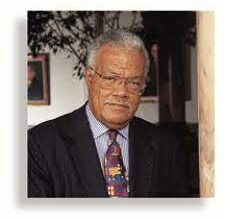Hearing set for April for Brockport mayor’s case
by Kristina Gabalski
Ogden Town Justice David Murante has set April 19 as the date for a hearing in the criminal case against Brockport Mayor Connie Castaneda.
Judge Murante declined a request to dismiss the charges saying he found no misconduct by law enforcement.
The mayor is charged with 14 counts of official misconduct and two counts of falsifying business records stemming from the alleged illegal rental of rooms at her property located on Main Street in the village. She and attorneys in the case appeared before Judge Murante in Ogden Town Court on Tuesday, February 26.
Judge Murante set the hearing in order to hear arguments and testimony regarding issues over which he has expressed repeated concern during the motions and arguments phase of the case – the mayor’s criminal liability and the chilling effect of such a prosecution on others who hold executive positions in government.
“We need this hearing,” Judge Murante said. “We need to proceed cautiously – there are a lot of important questions here.”
He questioned attorneys as to whether charges against the mayor warrant a criminal penalty.
“The civil penalties can be substantial,” he noted.
Judge Murante said he needs to determine whether a misdemeanor charge is appropriate, as opposed to civil prosecution of code violations.
He asked Assistant Monroe County District Attorney Mark Monaghan if there were any serious defects at the property that would endanger inhabitants in addition to allegations in depositions regarding a carbon dioxide alarm that went off and lack of heat in the month of December.
Monaghan said he was not aware of any in the living quarters. “The CEO (Code Enforcement Officer) was present during the search warrant,” Monaghan said, but added that the CEO had focused his attention on the furnace.
Also discussed was the possibility that the village’s rental registration fee may have been intentionally evaded and Monaghan argued that to forgo criminal prosecution would be, “… a reward in the future to anyone who might want to avoid detection.”
Judge Murante says he wants to know, “…. what the CEO did in coming to these conclusions … what caused him to take this route,” of pursuing criminal charges and overriding the process of notifying property owners who are not up to code and giving them time to comply before an appearance ticket is issued.
Attorneys and the judge discussed the fact that the charges were filed after the alleged violations had been completed and that village statutes do allow for the CEO to bypass steps in the notification process if it is warranted.
“Tension” between the mayor and the police chief are also relevant, Judge Murante said.
He said the court needs to make sure the charges are not, “going too far,” and determine whether or not this case justifies the nature of this prosecution.



